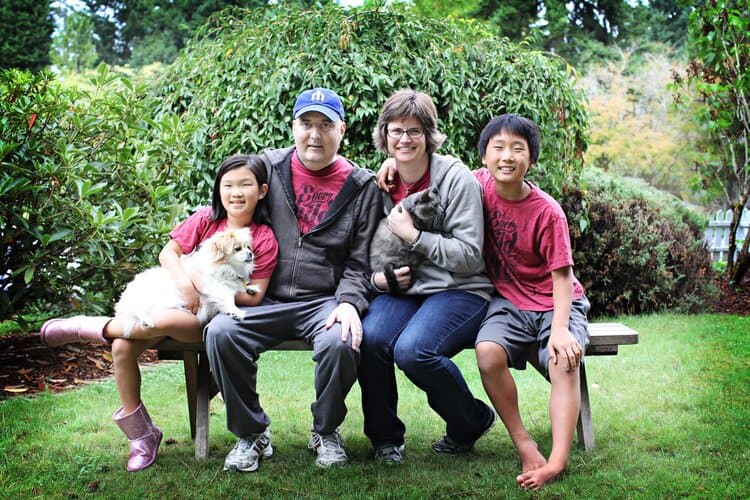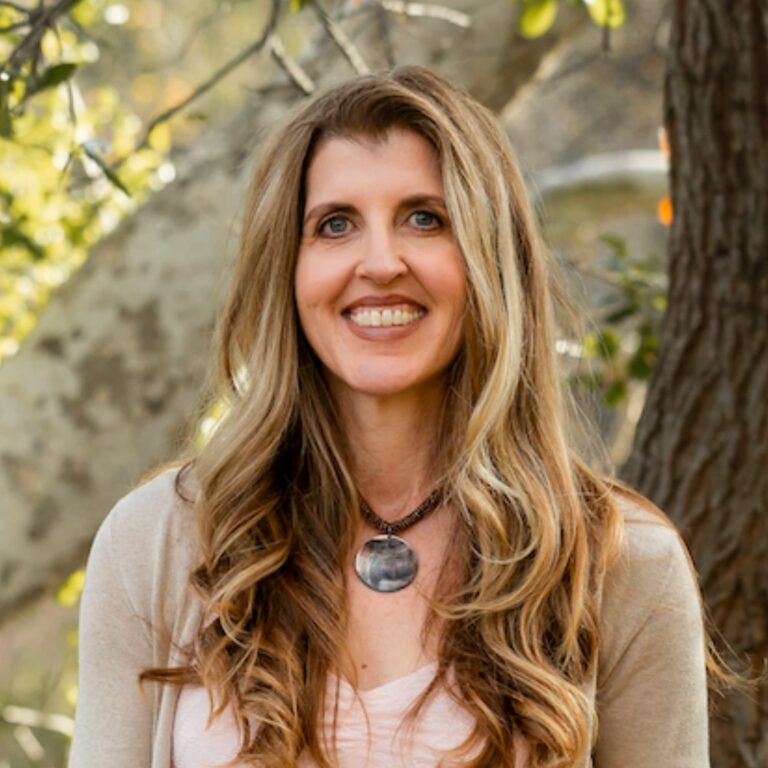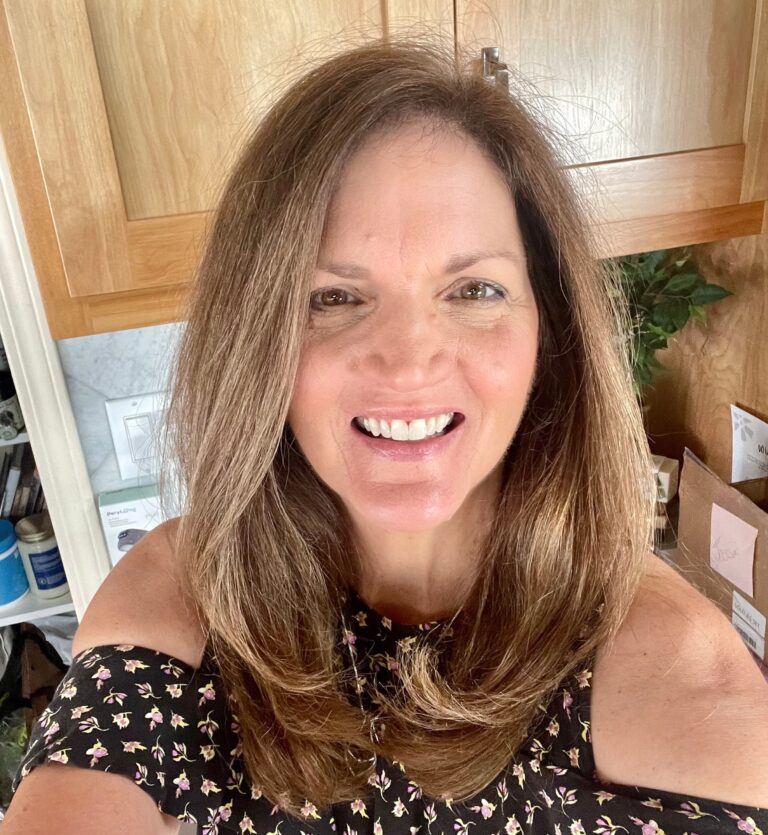How Grief Affects Your Body: Coping with Emotional Pain
If you didn’t know about somatic pain before you became a widow, you’re probably well-versed now in how grief affects your body physically.
We delve into the topic of how grief affects your body and how to manage the physical toll of grief.
From lack of sleep to constant stress and somatic pain, we share our personal experiences and the profound impact grief had on our bodies. As we explore the physical toll grief takes and the strategies we employed to find relief and healing, you’ll hear:
- Kim recounts her journey with knots in her shoulders, sore hips, and all manifestations of the stress and fear she carried
- Melissa opens up about her sudden loss and the immediate changes she noticed in her body, from loss of appetite to irregular heartbeats
- Jen describes how her state of shock caused everything to go numb
Listen to The Full Episode
Watch the YouTube Episode
Connect With Us
- Are you searching for emotional support, practical advice, and guidance on navigating widowhood? Join us in the Widow Squad membership.
- Follow us on Instagram and subscribe to our YouTube channel.
- Get all the widow wisdom you never knew you needed including exclusive content sent right to your email Inbox. Sign up here.
- Join our private Facebook group here.
Episode Transcript
Melissa: Welcome back to the Widow Squad Podcast. I’m Melissa Pierce and I’m here with my Widow Squad Podcast co-hosts Kim Murray and Jen Zwinck. On today’s episode, we want to talk about how grief affects you physically, whether that’s lack of sleep, lack of concentration, anything that happened to you physically, and what that biggest effect was on each of us.
So, Kim, do you want to start off?
How did grief affect you physically?
Understanding the Physical Symptoms of Grief: From Knots in Shoulders to Sore Hips
Kim: Well, I was a stress case. I mean, just absolutely stressed to the max. We’ve talked before about the Holmes Rahe Stress Test, which labels death of a spouse at 100 out of 100 point scale. We know death of a spouse is the most stressful thing people can go through.
So having physical symptoms of grief is obviously part of the deal. Although I didn’t know how bad that somatic pain was going to be. Knots in the shoulders. Or have you ever heard that trauma gets stored in your hips? Let me tell you, I’ve had really sore hips and lower back pain. I’m not going to go into all that, but your body keeps score. I think there’s a book called Your Body Keeps the Score, and it’s about all the physical pain that you can carry on in your body.
I had a ton of issues with knots in my neck. I was not only not breathing correctly, taking short, shallow breaths most of the time because I would notice myself holding my breath, my shoulders were hunched. And I was just in that “fight” response all the time. Everything was tight. My shoulders were tight and my body just had knots in my hips and my back and stuff.
I was having trouble with pretty much everything. I’m big into functional medicine and holistic stuff and I want to learn more about how to help heal myself versus going for pills and whatever else. I don’t like doctors and I don’t even like taking vitamins. I’m not a big fan of the swallowing part of those pills because some of them are really big. The big horse pills I don’t do well with.
But I decided to go to a functional medicine doctor, and I just wanted to learn more about different tests they don’t give you under normal blood tests at your normal family physician. I’d done some reading on adrenal fatigue and I thought I might be in adrenal fatigue. Just as a definition, it’s not an accepted medical diagnosis, but it’s a term applied to a collection of nonspecific symptoms such as body aches, fatigue, nervousness, sleep disturbances, and digestive problems. There are probably many widows that are suffering from adrenal fatigue.
I lived my life in a constant state of fear. So obviously, things get very scary after your spouse dies. I was convinced that I was going to die, and if I wasn’t going to die, that my kids were going to die.
So backtracking a bit here… you’ve heard the story. My husband died of a brain tumor. We’re going along and life is great, and we have a perfect little family, and suddenly he gets a diagnosis of a death sentence. Well, if it can happen to him, it can happen to me. So, I was just in that constant state of fear. Imagine your fight or flight response on overdrive 24/7, right? We all can imagine this because it’s probably happened to all of us, right? When you’re in that fight response, your body is secreting cortisol. Just boom, boom, boom. It’s getting you ready to do the fight, and it’s pumping all those hormones through you. Well, when you’re secreting or whatever you want to call it, all that cortisol that can affect your adrenal glands. That’s my non-doctor example of this. Okay, so I went to the functional medicine doctor and took a saliva sample at different times of the day because cortisol increases and decreases at certain times of the day and night. You have to take the saliva test and spit in a little tube and send it away. Anyway, my adrenal glands were fried. So we had to come up with some ideas about how to reduce that stress. Well, stress is my middle name, so reducing it is next to impossible.
Melissa: There’s not a pill you can take, right?
Kim: There’s unfortunately not a pill. I’ve said that Pinot Noir is my drug of choice. That does not actually work, though.
Melissa: Probably makes it worse.
Kim: So, we had to come up with some kind of plan. He was a nice man, but he’s a man who’s not a widow and has never lost his spouse. You could try yoga. You could try EFT tapping. He suggested all these, which I did. I did these things. But it’s not like it just was a magic elixir for reducing my stress, right? It was just a way for me to ger out of my head occasionally. But I was in that constant state of fear. That was what I had to come to terms with – reducing that thought process about fear. That’s really how I’ve lived most of my life, based in fear. I’m a worst-case scenario thinker. So I am going to go ten steps farther than a normal person would about what could happen in many situations. It drives people crazy, my kids especially. But that’s what I am, and that’s what I do. If my son took a bike ride to the neighbor, he was going to get abducted by a pedophile, that’s what was going to happen.
Melissa: Oh, my gosh. Catastrophe.
Kim: Catastrophe. And if my son went fishing with his buddy, he was going to drown because he was going to fall over in the boat, and the kid couldn’t get the life jacket to him fast enough or he wasn’t going to have his life jacket on or whatever. Actually, my older son did go out on a boat one time with his friend. They were 13, so young. But people were saying, “he should be able to go out on the boat with a life jacket with his friend”. It wasn’t a big lake that we lived by. But I’m thinking to myself, why on earth would you send a child out on a boat with another child? That doesn’t make sense to me. I’m a worst-case scenario thinker remember, but I’m trying not to put my fear onto my kids. I was like, okay, just wear your life jacket, because if you’ve got the life jacket on, chances are good you’re going to be okay if the boat tips. So they went out on the lake. Well, I walk to the lake with my binoculars because I’m going to make sure he got his life jacket on.
Melissa: Hiding behind a bush with binoculars!
Kim: Lo and behold, the life jacket isn’t on. So, I call him “get your ____ back to shore. He’s mortified! I talked to the other kid’s dad, and I’m like, “do you know they’re not wearing their life jackets out on the lake?” The dad says, “well, the life jackets are in the boat, right?” And I’m like, “yeah, but they’re not on the person.” He says, “well, as long as they’re in the boat, I’m okay with that.” I’m thinking, are you freaking kidding me right now?
Melissa: They’re just going to grab one on the way out of the boat?!
Kim: Seriously, this is not how it works. So, my life is just really considering all the possible 25,000 scenarios of bad things that can happen. When you talk about how that affected you physically, this is how it affected me. Just a constant state of knots and stress off the charts until I decided that I couldn’t live like that anymore. I did introduce some more yoga. I did the EFT tapping. I listened to meditations on YouTube and things like that.
Jen: I think that this is a good subject for another podcast episode. How did you become such an overprotective mom after your spouse passed away?
Melissa & Kim: That’s a good one. My kids will tell you.
Jen: I didn’t let my daughter learn how to ride a bike until she was like ten. I was so afraid she was going to fall off and break an arm and oh my gosh, how overprotective are you? And fearful. Just living in fear. That’s going to be in a future episode.
Kim: My adrenal glands are back to normal now, but that cortisol can be terrible when it’s constantly pumping out all the time.
Those were my experiences.
Melissa, what kinds of things did you go through?
From Knots to Heart Palpitations: Unveiling the Physical Toll of Grief
Melissa: Oh, gosh. Dave died very suddenly in our home, in bed, in his sleep, without warning. So that next day, as paramedics were coming, and my family was coming in, I wasn’t eating. It didn’t occur to me to eat. If I did put something in my mouth, I didn’t have saliva. It was the weirdest thing. I didn’t have anything to break it down. So I ate a lot of soup. My brother is a chef, and so he was there, and he would make things and they would be kind of wet. So I could only eat wet things. It was just so bizarre.
My sister in law that evening, when everybody’s there, poured me a glass of wine and I took a sip of it and it tasted horrible. It’s like my whole chemistry changed overnight. It was really bizarre. And I’m like, this is terrible. I don’t want it. So I didn’t drink wine for months. I couldn’t eat a cracker. It was just really bizarre. But I also noticed that day my heart was not beating on a regular basis. It was like skipping beats. I thought, this is interesting. I started to get concerned. Like, you, Kim. I thought, well, Dave died. I could die. My kids could die. Just this immediate thought of, oh my god, this just happened. This unbelievable thing just happened. Well, that could happen to me too.
I didn’t sleep. Couldn’t sleep. We would just all sleep together. There were so many people at the house. I was trying to find places for everybody to sleep. I ended up in the living room with the kids on a pullout couch and kids were on the floor and stuff. I would just get up and just pace in the dark. I could not sleep so I called my doctor, and she was also Dave’s doctor, to tell her what had happened. The medical examiner was also talking with her too. And I said, “hey, I’m noticing this weird thing with my heart.” She told me to get into her office immediately. I went into her office and she sent me up to the hospital to get an EKG. She asked me if I was sleeping. I said “no” and she wanted me to take a sleeping pill. No, I don’t want to do that. I’m anti-pill. I’ll figure this out. She’s like, “you’ve got to sleep.” So I made a deal with her. I’ll take half of this little pill. It was also an antidepressant.
And I didn’t want to take that either because I knew I didn’t want to numb myself, but I was kind of already numb, anyway. I did take those sleeping pills. I don’t know if it made a difference. I was able to get a few hours of sleep. During the EKG they’re like, “well, something odd is going on here.” No duh. But I didn’t say that. They put me on a five-day monitor, a heart monitor. I had to wear it, and this is all while I’m doing all the things, let’s just add wearing a heart monitor. It’s hard to shower. And they also wanted me to keep a log for the next five days if I noticed anything going on. I never did that. I can’t add that on to everything that I’m doing. So, I wore it for five days. On the fifth day, I turned it in, and they read the results. My doctor called me and she said they noticed Wednesday that my heart rate just shot through the roof. Something was going on there. I’m like, “well, what time was it?” She said, the time. That was the viewing. That’s when I took the boys. Okay. Yeah, well, that makes sense. And so I ended up having, throughout the following months, a lot of heart tests. I thought, this is bad. I’m going to die. I got the will done, everything. I got guardians set up for my kids. I got everything set up because I thought, this is going to kill me. And I read about broken heart syndrome.
Kim: At any time were they comparing that to a panic attack?
Melissa: That wasn’t discussed. No.
Kim: Don’t panic attacks mimic the feeling of a heart attack?
Melissa: Sure. Probably. Yeah. I don’t know. Oh, gosh. When I look back on it, it’s like, can I add any more stress to this situation?
So I got all the work ups, and they just said, “well, it’s just an anomaly.” Women have electrical things that go on with their hearts, their hormones and it’s just benign. You don’t have anything to worry about. It still happens from time to time where I just have a skipped beat. But that was really the physical effects. And then, of course I was able to sleep as time went by because I walked a ton. That was my saving grace, getting outside. I walked all over the place. Kids would go to school, I worked remotely, but I would just take an hour, and I don’t even know where I’d walk to. I would lose track of where I was. So really, the thing that helped me was doing a lot of body work, like, getting it out of my body. I was getting a physical massage. I don’t know, it was like an intuition type of thing. My body felt like crap. This is all in my body. I need to get it out. And so, really a lot of those physical symptoms went away. I lost a lot of weight because I just wasn’t eating. Food didn’t taste good. Nothing tasted good. It’s like my whole body chemistry just changed overnight. Yeah, it was very strange, but my appetite did come back eventually.
Kim: And did you guys notice how much you were crying? It dried the skin under your eyes. It just dries the skin out so much. I remember looking in the mirror and I felt like I was about 80 years old. Just because of all the crying and it burn. The tears start burning your skin because you’re crying so much and using Kleenex or whatever to get rid of the tears and stuff. I just remember thinking about how painful the tears became on my face.
Melissa: Yeah. And you’re dehydrated. I mean, that’s why they say drink water. That’s like the number one tip. Widows, make sure you’re hydrated because you’re crying a lot. You’re losing a lot of liquid.
Jen: Yeah. And I wouldn’t remember to drink.
Melissa: Or remember to eat.
Jen: Not really high on my list of things to do.
Melissa: How about you, Jen?
Numbing the Unbearable: How Grief Affects Your Body
Jen: I mean, I suffered so much trauma, and it was PTSD. It was such a state of shock just all at once to my body that my skin was actually numb. I could look at my arm and touch my arm and I couldn’t feel it. It was that crazy. Especially in the first month or so, I was feeling just numbness of my skin and my heart racing all the time. Of course my heart is racing. I couldn’t sleep. There was no sleep happening. I know I didn’t eat. I had such a hard time remembering everything in detail of what was happening to me, but I know I didn’t eat. I kind of stopped eating for a bit. Not that I couldn’t taste things, but I just didn’t want to.
It was mostly just the anxiety that I was feeling. Mostly just the panic and the fear and my heart racing and my mind racing, and I couldn’t stop it. There was nothing that I could do to slow those thoughts down enough for me to relax. I had been given some pills, like muscle relaxer kind of pills. I never was given any antidepressants but the muscle relaxer pills were not sleeping pills. It wasn’t like an Ambien or anything like that, but just something to just calm everything down. Because the tense feeling in my shoulders, my stomach, my stomach would burn and it just hurt. This deep burning in my stomach. I just ended up taking the pills. I think I did like a little half a pill but that was enough to just calm me down so I could fall asleep. And then once I would fall asleep, I would sleep for a few hours, maybe like 3 or 4 hours and then I would wake up again and I would be up for a little while kind of pacing around and then try to lay down and go back to sleep.
Physically, it was mostly just the lack of sleep and the horrible anxiety that was running through my body. I felt like I could feel my blood just like pumping through my body and hurting. It was just a physical pain. It was a pain in my body. And I’ve had people ask questions about is this normal? Is this normal what I’m feeling? Sometimes people lose their hair. Like their hair starts to fall out. If there’s anyone listening, there are other symptoms that we haven’t mentioned because not everything happens to everybody but that is definitely one of them too. Your hair can actually fall out. What are some other ones maybe that you guys have heard?
Melissa: Well, we’re not doctors.
Kim: We only play them on this podcast.
Melissa: What I think for me, and with everything that we’ve experienced, there’s hormones like cortisol. There are hormones. We are under so much trauma and stress, and it just starts pumping into our bodies.
Kim: That’s the adrenal fatigue we do not know what to do with.
Melissa: Just like the anxiety and just being so amped up because this out of order, just crazy, horrible thing just happened. And our bodies are in fight and flight and freeze, and all that stuff
Jen: The other opposing feeling is this amped up feeling, and yet you’re so exhausted.
Kim: That’s what I was talking about. When you go to see a functional medicine doctor, for example, they look at your whole body, not just a symptom at a time. So everything works in conjunction with each other. If your mind is racing and you’re not sleeping or whatever, all the thoughts are going, your body is reacting appropriately because your mind is telling your body to get in that fight place because you sense danger. You’re sensing danger around every corner. You’re constantly in that amped up space, which is a horrible place to be because you can’t physically stay in that place. Although I did for a very long time, right? We all did for a very long time. We don’t know, as just normal people walking around, that your body’s not supposed to do this for a prolonged period of time.
Jen: For a long period of time, yes! It was not a short period of time for me. This was months of feeling this way. I don’t know about you both.
Melissa: It’s a shock. It’s like you’re in a state of shock. Not the kind where they have to put a blanket on you and you go get treated in the hospital, but you’re still in a state of shock. Your body’s in shock. And maybe the flip side of this coin is…what did we do to manage things like that? I walked and I just felt like, I have to get the hell out of here. I gotta get out of these four walls and walk. But I don’t think my doctor told me to go do that.
Kim: I know walking is a cure for a lot of things.
Jen: I walked so many miles.
Managing the Physical Toll of Grief: Tips for Self-Care and Healing
Kim: I remember going to work and just being stressed because I had to go do this job I didn’t want to do. But I used to take myself out to lunch. So, I’d go visit customers every Wednesday and I would go out to lunch. That was what I looked forward to doing on those days that I did not want to go see customers or sell the chemicals. I took myself to lunch. I do remember that being the highlight of my day or my week. I’m going to Panera this week. I had Panera Bread and Olga’s Kitchen, which is like a Michigan thing, and Chipotle. I knew where every one was in a 30 to 40 miles radius. No matter where I was going to see a customer, I knew where the Panera was, I knew where the Chipotle was, and I would take myself to lunch. So those treats, I think, are important, too, to just give yourself something to look forward to.
Obviously, the yoga and the tapping and all that kind of stuff, which is great, but it’s also like Melissa said, the self care part of it. Just taking your baths or doing something that you look forward to. Those were the highlights of my week. And I still do it occasionally. I still go to Panera. I’m taking myself out to lunch today because I can, so I’m going to do it. My husband now, he’s like, “you’re going to Panera?” Why wouldn’t I go to Panera? It’s my happy place. Why wouldn’t I go there?
Melissa: It’s like a commercial for Panera!
Kim: I should get a kickback from them!
Melissa: There are habits now that I have carried forward since Dave died twelve years ago. Things that I never did before, I continue to do now just to manage, because I don’t think I was an anxious person before Dave died, but I definitely am now. I definitely have that. I think it’s something I manage, but that’s not who I was before. So it has physically changed me.
Kim: Yes. So, I was anxious before and was like 1000% more anxious after. That anxious part I knew had to change because I couldn’t continue to live the rest of my life like that. I knew I was anxious, but I just didn’t realize how bad it was until the anxiety became 1000% worse. I knew that was something that I had to zero in on. Just doing the massages every month and forcing myself to go, because sometimes we think we shouldn’t do that or spend money on ourselves or whatever, but because of the physical pain and the knots to the neck and all that stuff, I mean, I forced myself to go get massages. Massages release your actual lymphatic system and all the things that the massage therapist is getting out of you. The toxins. You need a place for them to go. So, massages are high on my list. High on my list. Not just going to get a massage, as getting the crap-ton of toxins out of me.
Melissa: This is therapeutic. This is not a day at the beach here.
Kim: Sometimes those messages hurt worse. I got off that table and I hurt worse than when I went in because everything coming out of me was actually painful.
Melissa: I would cry, but I don’t know if it was from the actual physical pain. They would be working on a knot or something on a particular piece of my body or part of my body, and the tears and emotions would just release. Like working on my right elbow, whatever was stuck there, they worked it out, and I was able to release the emotion or release that out of my body.
Kim: So we’re talking about that somatic release. Getting those muscles to relax and the toxins to escape and all the things is hugely important. And that’s why drinking water is important because you’re flushing, obviously flushing them out.
Melissa: Oh great advice. Yeah. We are not doctors, but we know what we know. We’ve got some widow wisdom between the three of us, for sure.







